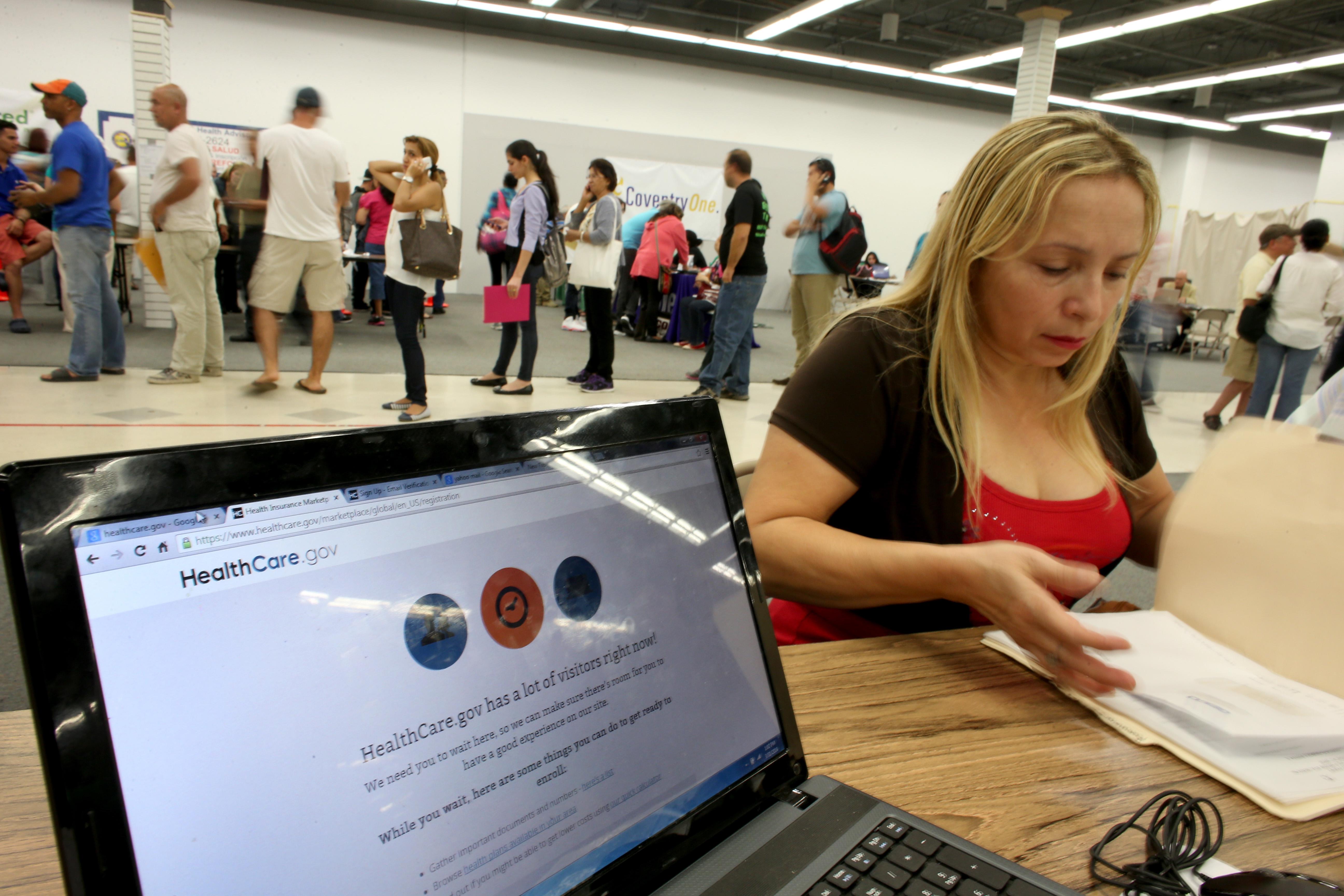The legal theory behind the latest Obamacare lawsuit—that the federally facilitated health insurance exchanges currently running in 37 states are illegal—is built upon a fraudulent, disingenuous, callous, malicious falsehood. It is thus unsurprising that, as the Wall Street Journal has discovered, the plaintiffs ostensibly trying to bring down Obamacare may not even be constitutionally authorized to bring the suit.
Here’s the basic problem with the plaintiffs in the new lawsuit, called King v. Burwell, which the Supreme Court will hear in March. In order to bring a case into federal court, a plaintiff must have “standing”—put simply, she must be adversely affected by the law she’s challenging. (This constitutional requirement prevents a random citizen from taking legal action against any law he dislikes.) The King case calls for a plaintiff who meets three criteria: She refuses to purchase health insurance; she isn’t exempted from purchasing health insurance under the Affordable Care Act’s many exceptions; and she lives in a state with a federally facilitated exchange. Such a person would be forced to pay a “penalty” to the IRS for refusing to have health insurance, and would therefore suffer a harm that qualifies her to bring suit.
Given that 37 states have federally run exchanges, you’d think the libertarian legal groups who concocted King could find at least one plaintiff who fit the bill. It seems, however, that they could not: According to the Journal, all four plaintiffs in King have glaring standing problems. One may not live in a state with a federally run exchange anymore—and, in fact, may never have. (This plaintiff, Rose Luck, cannot currently be located, but it appears that she also makes too little money to incur the penalty.) Two qualify for health care through the Department of Veterans Affairs, exempting them from the penalty. One makes too little money to incur the penalty, and will soon qualify for Medicare, exempting her from the penalty, as well.
Why did the Competitive Enterprise Institute—the think tank that marshaled plaintiffs for the suit—choose four people who may not even have standing to bring this case? The answer becomes obvious in Mother Jones’ report on the men and women behind the suit. Each plaintiff seems opposed to the law due to its connection to President Obama, while none of them seems to understand the suit itself—or the fatal consequences of a ruling against the government. It’s overwhelmingly clear that the CEI needed a few names to attach to its transparently political lawsuit, and rather haphazardly scrounged together these four without seriously considering their legal authority to bring the case.
Of course, the CEI could have avoided most standing concerns by simply bringing the case as a class action, the form most public interest litigation takes. But, as one federal judge explained to the CEI, that would likely be impossible because “nobody wants” what the CEI is seeking to obtain. A ruling in favor of King and his conservative co-plaintiffs would rip health insurance away from 8.2 million people and kill as many as 9,800 people each year. Very few Americans, even Obamacare opponents, could put their name on such a grisly ruling—and live with the knowledge of the pain they inflicted.
